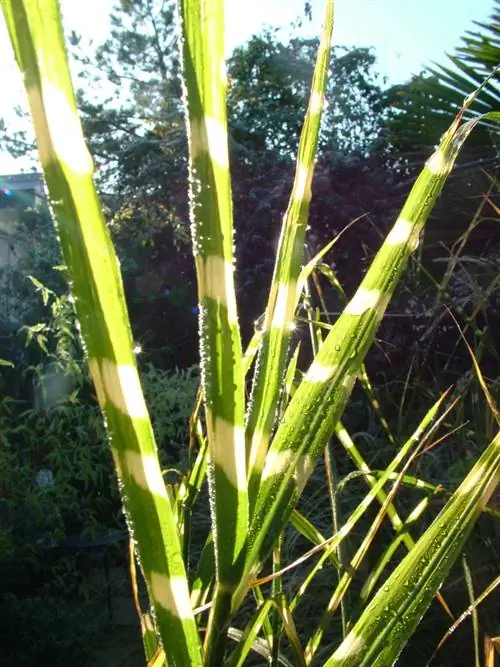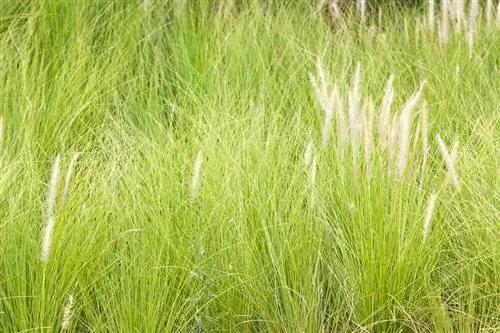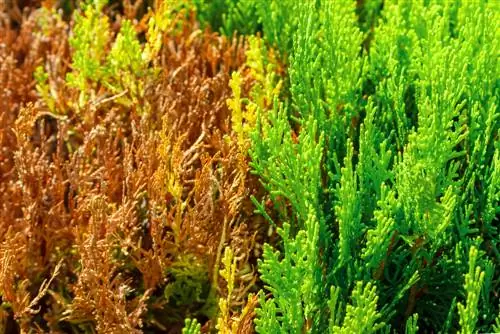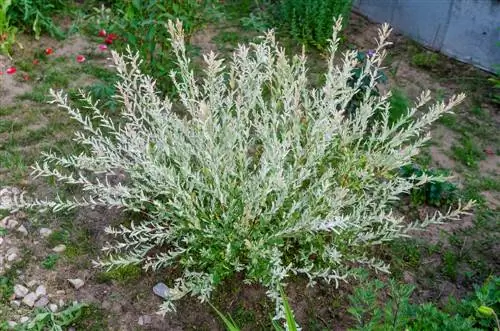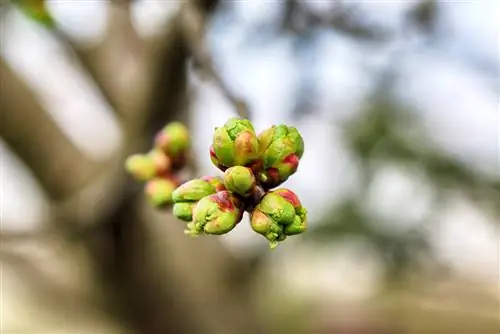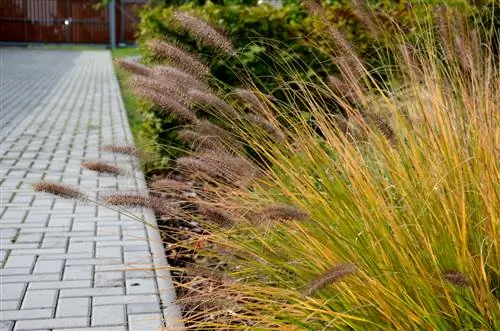- Author admin leonars@hobbygardeners.com.
- Public 2023-12-16 16:46.
- Last modified 2025-01-23 11:21.
The sight of the delicate stripes on the green stalks of zebra grass seduces you into distant Asia with a little imagination. Thanks to its exotic appearance, the Chinese plant is one of the most popular sweet grasses in German gardens. However, it is particularly annoying when the long stalks suddenly dry up. Too much sun? Hardly, because zebra grass loves bright, warm locations. There are often completely different care errors behind it.
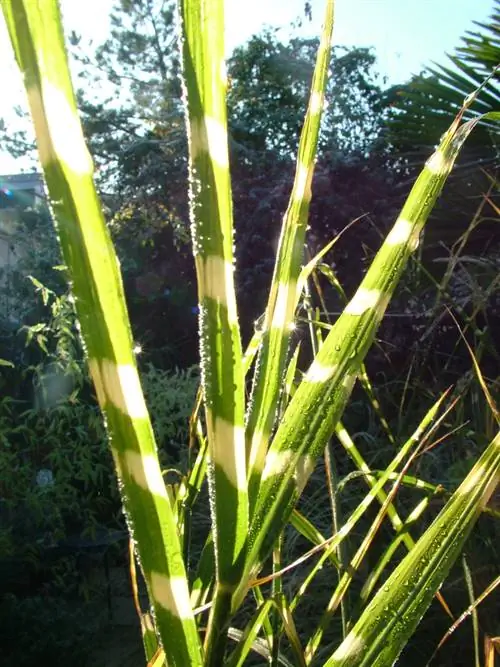
Why is my zebra grass drying up?
If your zebra grass is drying out, it could be due to natural leaf shedding, incorrect substrate or watering behavior. Make sure the soil is nutrient-rich and moist without waterlogging and water the grass twice a day, especially on hot days.
Causes
- natural leaf shedding
- wrong substrate
- incorrect watering behavior
The natural shedding of leaves
In autumn, the zebra grass gradually goes into hibernation. In order to save reserves, it sheds its leaves. As with many plants, this dries before the process. In this case there is no need to worry, the plant will sprout again next spring.
Soil requirements
Zebra grass needs moist soil with lots of nutrients. Otherwise the stalks will dry out quickly. On the other hand, waterlogging must not form. You should pay attention to this care mistake, especially when keeping pots. You usually don't need to add fertilizer to the substrate. However, if the stalks are dry, it's worth a try. In this case, use organic materials such as compost (€43.00 on Amazon). Ready-made fertilizers with a high s alt content cause additional damage to the plant.
Watering behavior
As already mentioned, no waterlogging should form around the root ball. Otherwise the roots will begin to rot and the plant will die. Dried leaves are a serious warning signal. On the other hand, zebra grass requires a lot of water. On hot summer days you should water it twice if possible. The morning hours and midday are recommended for this so that the water can evaporate by nightfall. To avoid waterlogging, wait until the substrate has dried before watering again.
Diseases or pests?
When the stalks are dry, the first suspicion is often that there is a disease infestation. However, zebra grass has hardly any natural predators and is also very robust against diseases. You can also rely on it to withstand frosty temperatures down to -20°C.

